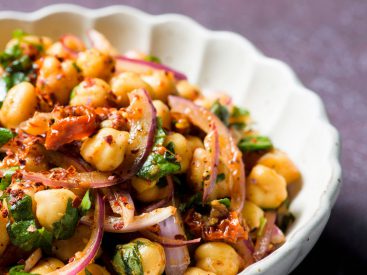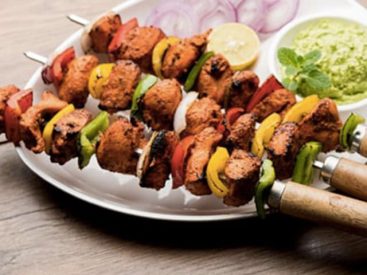The recipe Cut a 600g cucumber in half lengthways, then into short pieces, about 6m in length. On a chopping board, lightly bruise the flesh with a rolling pin or the flat side of a kitchen knife, to soften it. Put the cucumber in a colander over a mixing […]
Delicious!
Delicious!



